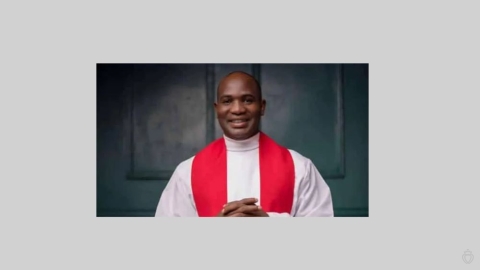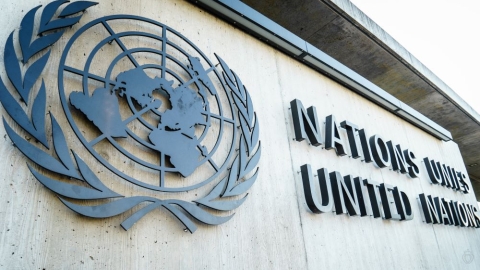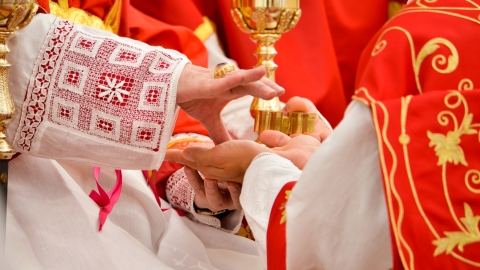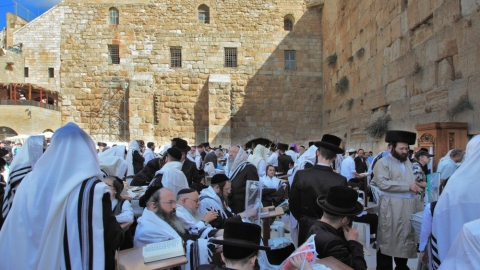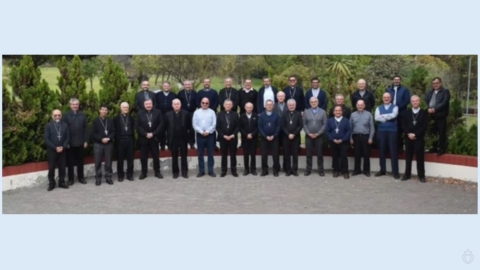Towards the Disappearance of the Dicastery for the Doctrine of the Faith?
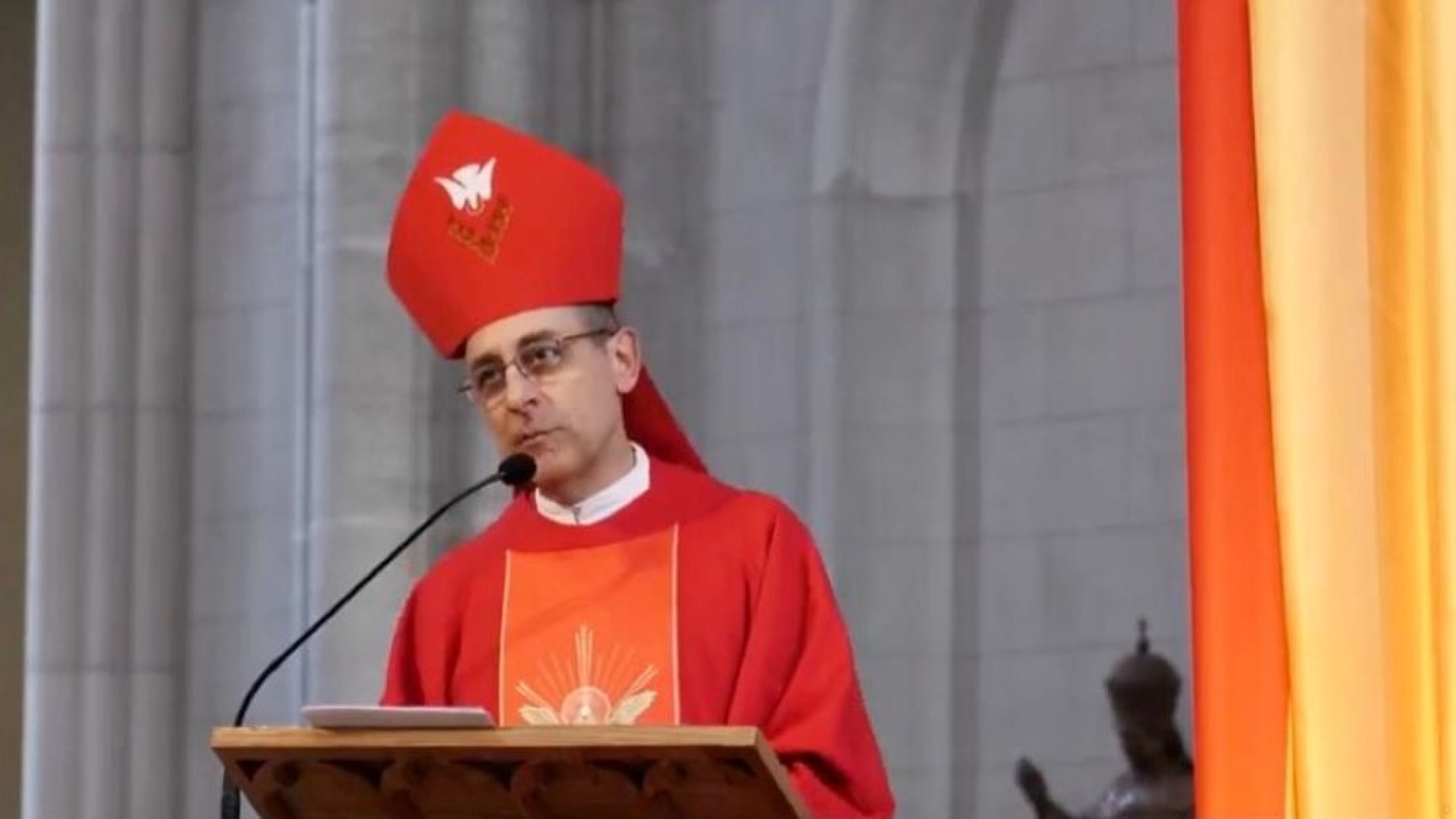
Msgr. Victor Manuel Fernandez
Since the appointment of Msgr. Victor Manuel Fernandez as Prefect of the Dicastery for the Doctrine of the Faith (DDF), many reactions have been heard, ranging from misunderstanding to consternation, without mentioning the comment of Cardinal Gerhard Müller who had already accused the new prefect of heresy in the past.
All recall the old and very close relationship that unites Francis and “Tucho,” an old nickname of the new prefect. This relationship is not only linked to friendship, but also and above all to a community of thought. Thus, writes Luisella Scrosatti in La nuova Bussola Quotidiana: “Because after all, we already know Fernández: he is none other than Francis. And Francis is Fernández.”
Stefano Fontana says on the same site: “The new Prefect of the Doctrine of the Faith is a carbon copy of Francis. (…) who has always been his [Francis’] faithful companion and whom he has gradually promoted in Argentina to significant posts, such as the rectorate of the Catholic University and the ordinariate of La Plata in hasty replacement for Bishop Héctor Aguer, guilty of disagreeing with the pope on Amoris laetitia.”
A Wordsmith for Francis
The authors note that Archbishop Fernandez helped draft several papal texts: “In fact, it is well known that behind the drafting of the Apostolic Exhortation Evangelii gaudium was the hand of Fernández, who even left his signature in the citation to §263 (footnote 207), as if he were a Father of the Church,” Scrosatti recalls.
She adds, “It is well known that even Amoris Laetita (AL) was largely the result of the work of the former rector, with centones from his writings reported in the text of the post-synodal Exhortation, as Sandro Magister pointed out in 2016.”
On a Mission of Reform
The “roadmap” drawn up by Francis for the new prefect of the DDF announced the character (cf. the article), but Tucho explained his reform mission in an interview with Radio Perfil: “he explained his appointment to the post of Prefect of the Faith by the fact that the new apostolic constitution Praedicate Evangelium, promulgated by Francis for the reorganization of the Roman Curia, “was not sufficient,” as Giuseppe Nardi reports in katholisches.info.
Fernández added in the same interview that “Francis had called him to Rome to complete the reorganization of the Congregation for the Doctrine of the Faith, because the efforts undertaken so far were insufficient.” Stefano Fontana anticipates this transformation:
“It will probably be a Congregation for the Doctrine of the Faith with little interest in doctrine, or even opposed to it. It will understand its role as promoting theological dialogue, but without exercising any form of doctrinal control and guarantee.… It will be pluralist and will welcome all philosophies and theologies.”
But, the author adds with much truth: “Let it not be thought, however, that it will no longer be dogmatic or that it will not be inflexible. It will be, but of a dogmatism without truth and focused on praxis. Those who do not conform to the new practices will be condemned and persecuted. And even merely ‘resisting’ will become an indictment.”
Aldo Maria Valli, on his blog, sees Fernandez’s appointment as “a total rupture”: “We cannot speak of a change of direction, because Tucho Fernández does not have a direction, unless we want to consider as a project the complete deconstruction of Catholic thought, of the Catholic vision of man and the world. It is more correct to speak of the end of a journty.”
And he adds: “there is no theology of Tucho Fernández: there is no structured thought, there is no line of interpretation. There is only a jumble of expressions that yield on the one hand to a vague sentimentality and on the other to the most shameless relativism..…Francis, therefore, with this appointment says: enough with theology, it is time for non-theology, enough Church, it is time for non-Church.”
A Tailored Nomination
Finally, for Scrosatti: “It is clear that the person of Fernandez and the specific mission entrusted to him by the letter of appointment are tailor-made for the plenary assembly of the Synod that will begin in the autumn: anyone who dares to object to the ‘openings’ that are being proposed will immediately be accused of being one of those who used ‘immoral methods’ and will be able to taste the dialoguing and mild methods of the Argentine duo.”
But the influence of the new Prefect could also strengthen the unstable position of Msgr. Vincenzo Paglia, President of the Pontifical Academy for Life, whose positions are increasingly distant from Catholic doctrine, stresses the same author. She concludes: Bishop Fernandez “is the clone not only of Francis, but also of Paglia.”
Scrosatti recalls that on March 5, Msgr. Fernandez preached that: “for many centuries...without realising it, [the Church] has woven together a whole philosophy and morality full of classifications, to classify people, to assign labels: this one is this way and this other one is that way, this one can receive Communion and this other one cannot, this one can be forgiven and this other one cannot; and that only those who repent of their sins and show a will to amend may receive sacramental absolution.”
According to the prelate, this is a “terrible” thing. Fortunately, this was what used to happen, because Pope Francis has changed all these barbarities. – No comment.
José Quarracino explains on Marco Tosatti’s blog - Stilum Curiae - that “the Archbishop of La Plata explicitly recognized the Bergoglian doctrines of synodality and inclusion of the LGBT+ community in the life of the Church, to the point of affirming that those who do not accept this last inclusive attitude cannot be catechists in the Church.”
The same author reports this astonishing statement: “There are things that we sometimes think are immutable, and that in reality are not. The Sunday precept, for example, is not indispensable and can fail.”
Conclusion
Most recently, Fr. Martin Lintner was not accredited by the Dicastery for Culture and Education to become Dean of the Faculty of Philosophy and Theology at Brixen-Bressanone, Italy, for his heterodoxy in “publications on sexual morality.”
But Pope Francis appoints to the DDF a theologian, a bishop, who professes heterodox doctrines, even heresies according to Cardinal Müller. And who is now charged with encouraging and guiding, without condemning, theologians such as Fr. Lintner.
In the light of the above, the question mark which adorns the title of this article seems superfluous. Rather, it must be said that the Dicastery for the Doctrine of the Faith should no longer be called such, but instead, the Dicastery Against the Doctrine of the Faith.
(Sources : La nuova Bussola Quotidiana/AM Valli/katholisches.info/Caminante Wanderer/Stilum Curiae – traduction benoitetmoi – FSSPX.Actualités)
Illustration : © Facebook Arzobispado de La Plata
